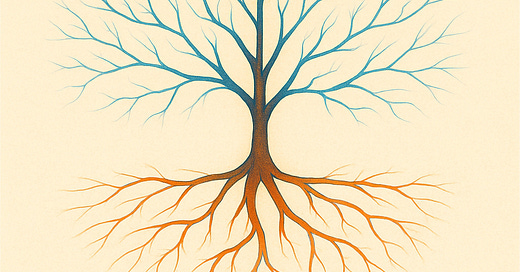Say yes?
Before the mouth moves, before the face responds, the system begins . . .
First Branch: Logistics
– Time of day. Morning means possible momentum. Evening means needing reserve energy. Afternoon is a coin toss—where will the crash fall?
– How long. One hour rarely means one hour. Budget for unexpected linger, transition, decompression.
– Location. Indoors or outdoors? Public or private? Familiar or foreign? If I leave, do I need an explanation?
– Transportation. Driving means autonomy. Being driven means loss of control. Transit means people. People mean noise.
Second Branch: Sensory Load
– Lighting. Fluorescent? Natural? Will it change over time?
– Sound. Consistent drone or random spikes? Music, conversation, interruptions?
– Seating. Will I be allowed to sit where I need to? Can I stand without being noticed?
– Clothing. What will I have to wear to be appropriate? Will it itch, bind, distract?
– Food. Will there be any I can eat? Will anyone comment if I don’t?
Third Branch: Social Energy
– Who will be there. Do I know them, or will I need to construct and hold a version of myself for each person?
– How much tiny talk. Will there be depth or just pacing? Will I be expected to perform warmth on command?
– Masking required. Can I stim? Can I leave and come back? Will silence be permitted? Or will it need filling?
– Role clarity. Will I be a guest, a helper, the entertainment, the background?
– Natural concern. Will I be understood without explaining?
Fourth Branch: The Cost of No
– Will this be seen as rejection?
– Will I need to give a reason that satisfies them more than it respects me?
– Will I be invited next time? Will I want to be?
– Will I carry guilt for not wanting to go—even if I know better?
– Will this no become a reputation?
Fifth Branch: The Recovery Window
– Do I have the day after free?
– Do I have to speak to anyone when I get home?
– What will I need to do to come back into myself? And will I be able to do it without interruption?
Sixth Branch: Desire
– Do I actually want this?
– Or do I want to want it so I can belong to a form of myself I think I’m supposed to be?
– Do I feel dread, or is there a pull toward it?
– Does the yes come from my center, or from my fear of disappointing someone else?
Final Calculation: What’s the Cost of Yes vs. the Cost of No?
– One costs energy. The other costs coherence.
– One might deplete the body. The other might isolate the self.
– One gets praise. The other receives questions.
– Both take something. Which one returns anything?
When yes finally comes out, it’s not light.
It’s not casual nor automatic.
It’s informed.
It’s earned.
It’s rooted in self-awareness that most people haven’t needed to develop.
So when someone says yes slowly—or not at all—believe that it was a decision made with care. A decision full of data, emotion, history, and self-respect.
This yes survived a thousand reasons not to be said.
— Autistic Ang






Amazing articulation of a very familiar system! 🤩
My brain’s thought journey feels so seen.